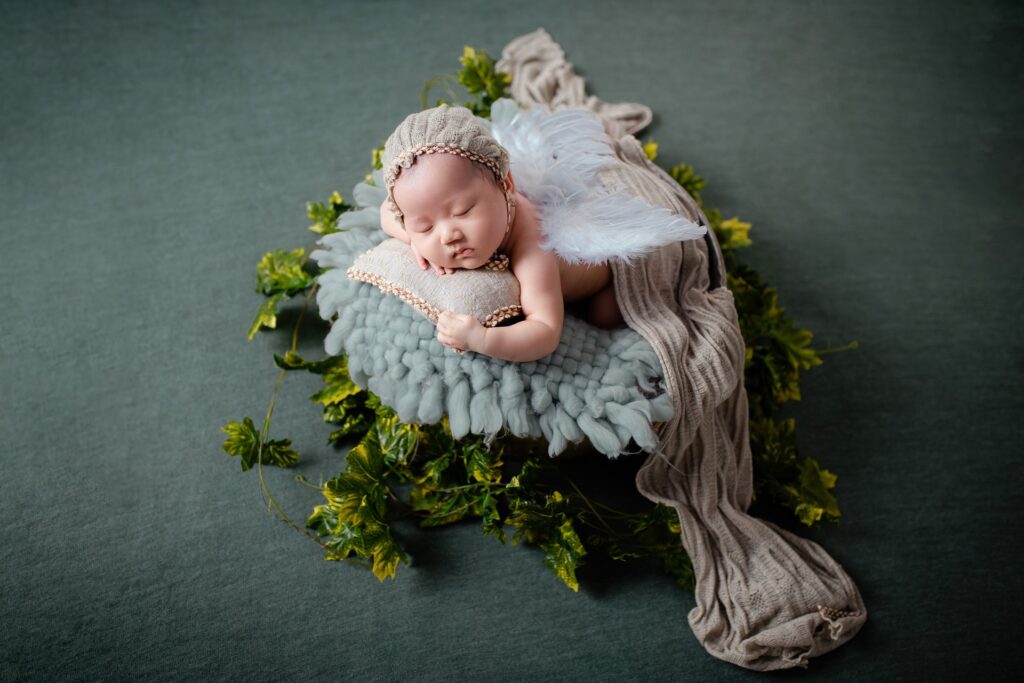Can Babies See Angels

“Baby” and “Angel”, 2 beautiful words, have made much imagination and association.
Exploring the development of babies’ vision in connection to perceptions of angels reveals interesting correlations. Understanding infants’ perception of light and color is crucial, as it may influence cultural beliefs about babies and their ability to perceive spiritual entities. The relationship between cultural beliefs and infants’ visual development presents an intriguing area for exploration.
Evidence
What physical evidence do people have that babies can see angels?
One argument people make is sometimes babies appear to be looking at something when there is “nothing” there.
For instance , they gaze into the air or at a blank and act like they are interacting with a person. And since angels are invisible yet have personality, some conclude it’s God’s spiritual servants that they are watching.
Beliefs and Cultural Perspectives
Cultural and religious beliefs often encompass intriguing notions about babies and their connection to the spiritual realm. Throughout history, various cultures have held beliefs about babies being able to see angels or spiritual entities. These perspectives provide a fascinating insight into the cultural significance of infants and their perceived interactions with the supernatural.
Some people think that babies see angels because their spirits are pure. But others argue that
Babies’ essence is inherently impure. The Bible teaches that all people are born with a sinful nature (e.g., Rom 3:23; Psa. 51:5). Babies are no exceptions. We were born in sin, having been conceived by sinners, and we live in a world pervaded by sin.
From the Bible’s view, the Bible doesn’t say that babies can see angels. While sometimes angels appear in visible form, including as a human being, it’s adults that see, hear, and interact with them.
As far as the Bible’s perpective, babies don’t have unique spiritual sensitivities, although some non-biblical Jewish and Christian worldviews allege they do.
Natural Explanation
Others respond that there are natural explanations for babies appearing to “see” something, like light or sound. From being able to perceive only light and shadows to gradually identifying colors and shapes, the progression of their visual abilities is remarkable. Factors such as sensory stimulation and neurological maturation influence how babies perceive the world around them.
Babies’ eyesight doesn’t usually develop until they are about three months old, and it takes about five months to start seeing clearly. It takes longer for them to have the same eyesight as an adult.
For new born babies, their vision undergoes significant development during their early stages of life. Each day, everything that they see is new.
Hard to Verify
It is challenging to substantiate this belief due to the inherent limitations in our human capacity to recall early memories, especially during infancy. Infants’ brains are still developing, and their cognitive abilities are not yet sophisticated enough to form long-term memories. This phenomenon, known as “infantile amnesia,” posits that most people cannot remember events from their early childhood, typically before the age of 3-4 years.
Consequently, even if babies could indeed perceive angels, they would be unable to retain these encounters in their memory as they grow older. Therefore, any claims about infants’ ability to see angels are virtually impossible to verify through empirical or anecdotal evidence. As intriguing as the idea may be, the limitations of human memory make it a highly speculative and controversial topic.
Conclusion
In summary, the debate of babies’ vision of angels, intertwined with cultural and scientific viewpoints, provides a rich tapestry of understanding. As we explore the mysteries surrounding babies and their interactions with the spiritual world, it is essential to approach the topic with curiosity and an open heart.
The notion that babies can see angels is a romantic and intriguing idea. And we do hope that the beautiful imagination really exists.
We have shared some interesting points to this question. We cannot be totally right. However, different people share different views. Hope it helps and inspires you.